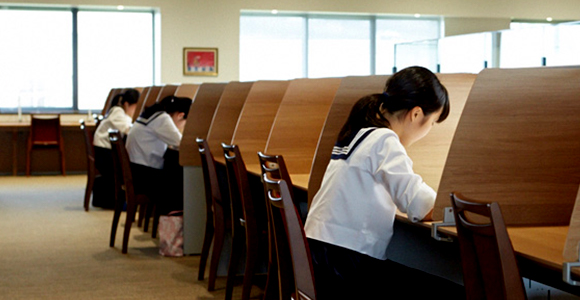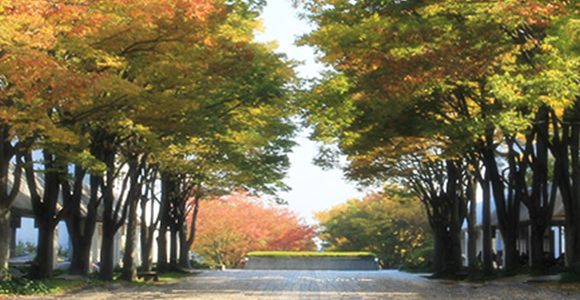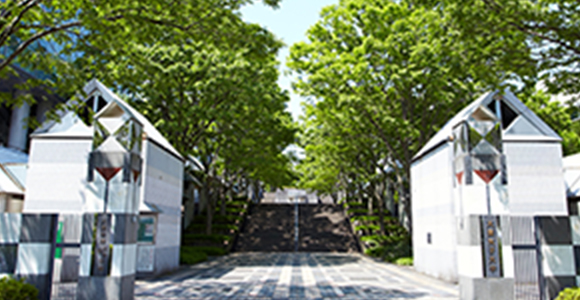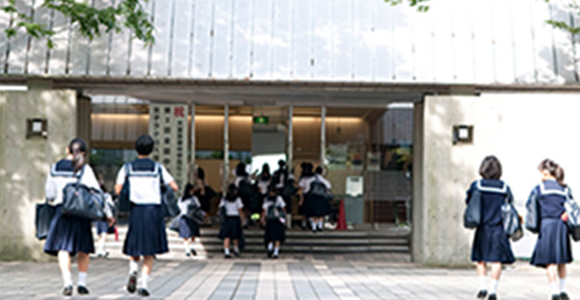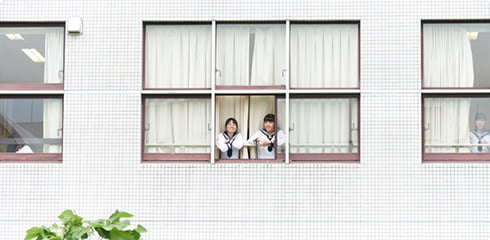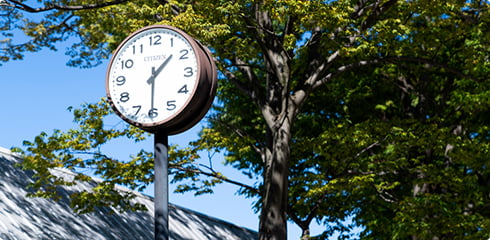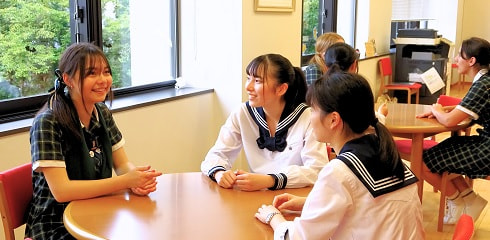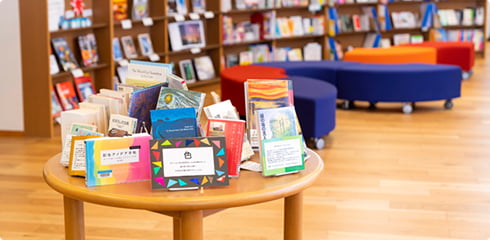オーストラリア 留学レポート from 小川さん【2019年度】
更新日時:2020年3月14日
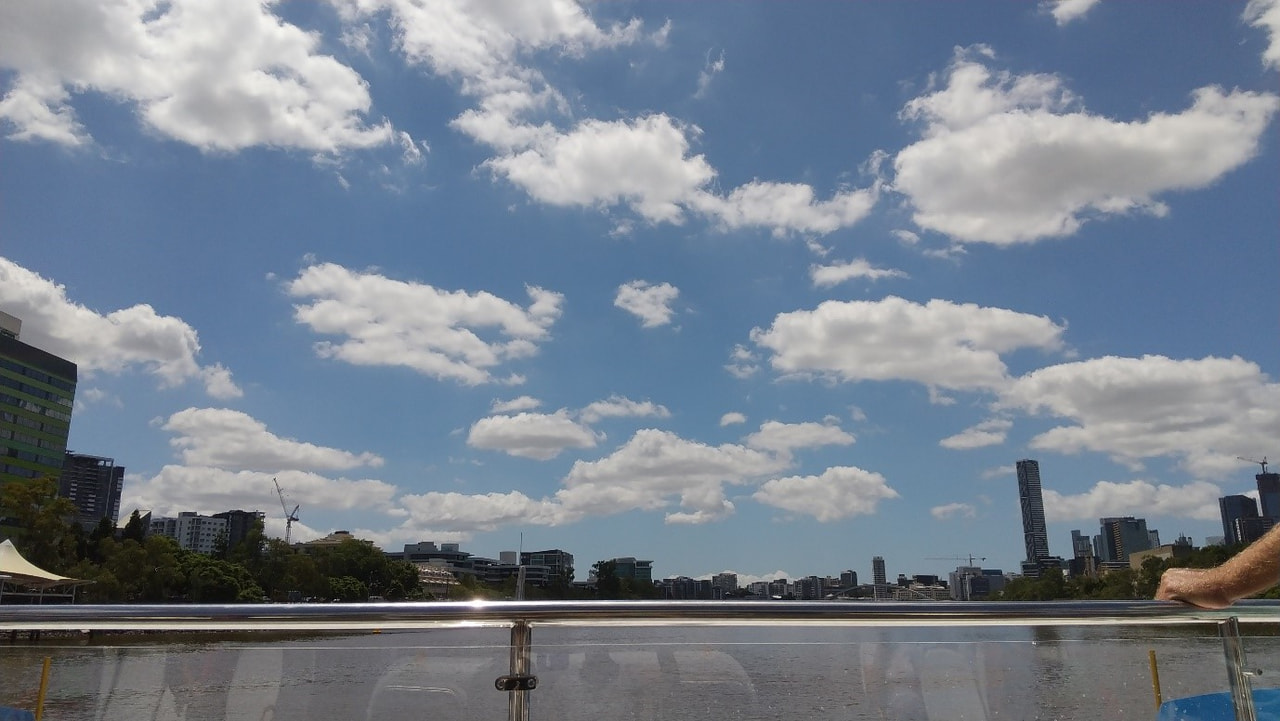
高校1年生(32期生) オーストラリア留学
Brigidine Collegeにて
TOP写真:When I rode a ferry with my family!
Hi! This is Reika Ogawa. I’m in Australia as an exchange student from Otsuma Tama high school to Brigidine College in Brisbane, Queensland. I’m staying in Australia from January 26th and will be here until March 29th. The life in Australia is completely different from what I have in Japan and there are a lot of things I literally want you to know about it. Through this report, I would describe and embody what I feel in here in detail and I hope you would be content with it.
ごきげんよう!小川玲佳です。私は今オーストラリア、クイーンズランド州ブリスベンに留学していて、Brigidine Collegeに通っています。1月26日にオーストラリアに渡り、3月29日までここに滞在する予定です。オーストラリアでの生活は日本のものとは全く違い、皆さんにもぜひ知ってほしいです。このレポートを通し、オーストラリアでの生活の様子や、私が感じたことを詳しく説明したいと思います。
Firstly, I’d like to explain about Brigidine College, which is a Roman Catholic school for girls and has a lovely green coloured school uniform. We wear a hat as well at school. It is quite usual for private schools in Australia to have a hat as a part of uniform. The school is erected in steep landscape where I need to climb surprising number of steep slopes and stairs. We have assembly every Tuesday and mostly Principle Mr. Carhill gives a speech about faith and spirit dedicated to Catholic, especially for House leaders, and sing religious songs. The words of enjoyable and casual would best fit for attribution of these songs. We students are divided into 6 groups of houses, which are Foley, Chanel, Damien, Delaney, McKillop and De Porress.
Each name of these houses are named after vital people such as patron saints and founder of this school. This house system is to generate sense of belonging for all students by having the same house homeroom with students from all grades together. Still, I have classes for nine subjects with students in the same grade and from various houses. Basically, there are 6 period of lessons for each day from Monday to Friday. Lesson for 1 period is mostly 50 minutes and there are no breaks except for two times of recess, which is called Morning Tea and Lunch respectively. We eat snacks and lunch we bring from home at these recesses. Students willingly decide which recess they use to eat lunch. That fact allows my friends to eat lunch at very early Morning Tea time, which is curious thing to know for me.
まず、私が通っているBrigidine Collegeという学校について説明します。Bridigine Collegeはローマ・カトリックの女子校で、生徒は素敵な緑のワンピース制服と麦わら帽子をかぶります。帽子はオーストラリアの私立学校によく見られる制服の一部です。学校は傾斜地にあり、また土地が狭いため、学校内には多くの坂、階段があります。毎週火曜日には集会があり、校長先生の演説を聴き、歌を歌います。内容はカトリックの精神や信条に基づきます。歌は、ポップソングを彷彿させるほど明るく、また歌っていて楽しいです。
生徒は6つのHouseのうちの一つに所属します。Houseは学校の創始者や宗教的な人物など著名な人々の名前にちなんでいます。Houseには7年生から12年生までのすべての学年の生徒が所属します。毎朝の朝礼やイベントなどでHouseの生徒たちは共に時間を過ごします。House制では、すべての学年の生徒と関わり、協調性、一体感を生徒たちが学ぶことを目的としているそうです。授業は、いろいろなHouseからの同学年の生徒約20人前後で受けます。学校は月曜日から金曜日まであり、1限から6限目まであり、基本的に50分授業です。それぞれの時限の合間に休み時間はなく、2限と3限の合間のMorning Teaと4限と5限の間にあるLunchという時間のみが休み時間となります。それらの時間に各自持参であったり購買で買った軽食と昼食を食べます。どの休み時間に何をいつ食べるかは個人によって異なり、10時頃のMorning Teaの時間に昼食を食べている子を見たときは驚きました。
The subject every 10th grader has is English, Mathematics, Physical Science, Humanities, Core Physical Education, Religious Education and Formation. I chose Japanese and Digital Design as electives, the two subjects each student can choose on their own, from Dance, Drama, Art, Music, Japanese, French, Digital Design and so on.
The hardest and the most confusing subject is, as I’ve expected, Religious Education where I feel the overly difference of spirituality and belief for Catholic and Buddhism. As for easiest one, it is Mathematics. The content of the lesson is what I’ve already done in Japan such as Simultaneous equations and Linear equations.
I think contents of English and Humanities literally stimulate students’ creativeness. In English classes, we discuss the representation of celebrities and their impact on teens culture. In humanities, we consider definition measurement of well-being and SDGs and eventually summarize main ideas of them. Teachers in these subjects try to proceed lessons through the communication between teachers and students by questioning and answering predominantly, the situation to be seen in Japan no longer. Honestly, physical science is hard unexpectedly because it’s my first time to learn physical science thoroughly and I never understand physics clearly. We’re working on Velocity, Momentum and Impulse and I often talk a lot with friends to understand mystifying formulas and solve assigned worksheets.
10年生である私達は9教科の授業を受けます。そのうちの必須科目は英語、数学、理学、人文学、体育、宗教そして道徳です。また、選択科目はダンス、ドラマ、美術、音楽、日本語、フランス語やデジタルデザインなどがあり、そのうちの2教科を選択します。私の選択科目は日本語とデジタルデザインです。
最も難しいと感じる科目は予想通り宗教です。日本の仏教などの宗教にに基づく精神性や信条がカトリックでは完全に異なり、混乱してしまいます。数学は、連立方程式や直線の方程式など日本で一度習った内容を勉強しているため、一番易しい教科です。
英語では芸能人の活動がどのような影響を10代の若者に与えるのか、人文学では健康やSDGsの定義や判断、測定方法を学び最終的には最も重要な内容を要約していきます。これらの2教科では、先生が質問を投げかけ、それに対して生徒が意見を述べて授業が進んでいくという現地特有の授業光景であり、生徒の積極性と創造力が発揮されます。
理学は、速度、運動量や力積を習っていますが、日本では学んだことのない新たな分野であり困惑します。V=U+atや P=mVなどよくわからない公式にとても苦戦していますが、友達と相談しつつなんとか授業についていっている、という状態です。(笑)
We’re needed to bring computers to all lessons and it is necessary to use computer applications such as OneNote and Seqta to do homework and check timetable.
すべての授業に学校から配布されるノートパソコンを持っていき、OneNoteやSEQTAなどのソフトを用いて宿題や時間割の確認を行っています。
Secondly, I would state about the life with my host families. I spend each 3 weeks with each host family, thus following this systematic rule I can meet 3 host families during 65 days of stay here and I’m in the second family’s house now. All the family members are sweet and fond astonishingly and they embarked me journey for fantastic and notable places represented by Gold Coast and South Bank. By the way, the most enjoyable place out of all is Broad Beach in Gold Coast. With well-known fact of vast land in the country, every place here has validity of replacement of mind from exhausted to relaxing and refreshing. I infer such aestheticized sense I obtain here well reflect culture and characteristic of the Australian.
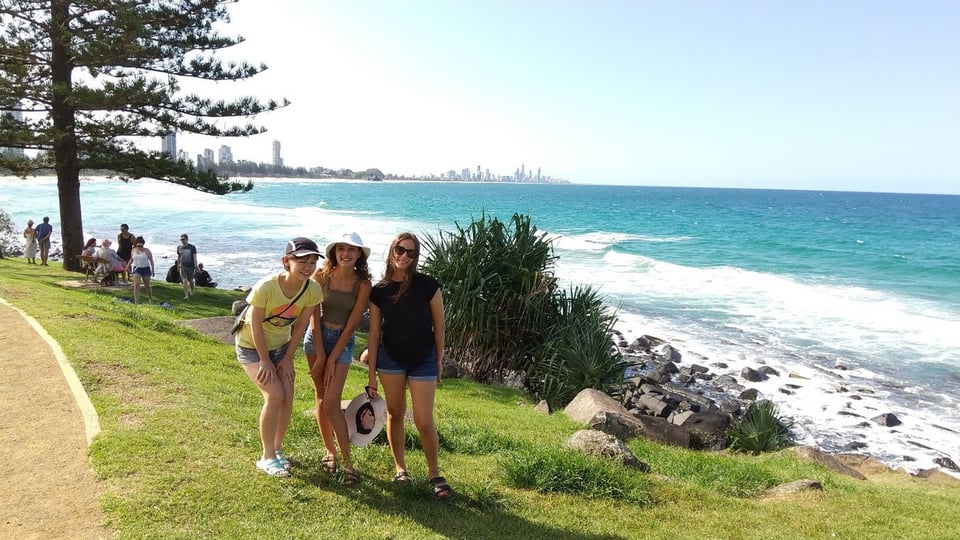
↑I travelled Gold Coast!
次に、ホストファミリーとの生活について述べます。65日間の滞在で3家族と過ごすため、3週間毎に新しいホストファミリーのもとへ移動します。今は、2組目の家族と生活しています。素敵で優しい家族の方々は、ゴールドコーストやサウスバンクなどの素晴らしい場所へ連れて行ってくれます。広い土地を生かした様々な場所は開放的でとてもリラックスすることができます。このような開放的という特徴はオーストラリアの文化や国民性にも当てはまります。
Finally, I want to allude factual and empirical things I’ve gained in Australia. Predominantly, they are common, endemic and cultural sense and value which is the essential purpose of my stay to derive.
The conclusion of all experience here can be summarized to the words of mental and physical. More precisely, the Australian culture is explained in terms of more physical and less mental in comparison to the one in Japan. Let me mention three evidences.
最後に、私の留学の目的であるオーストラリア固有の文化的価値観や常識を、私の実際の体験に基づいて紹介したいと思います。
結論からいうと、それらは日本との比較によって身体的と精神的であることの違いの発見によってわかり、また説明がつくと考えました。3つの理由を書きます。
Long precious stay with Australian family made me notice surprising number of occasions of applying expression and rhetoric for conversations to convey familial love presented for “I love you,” “honey” and “darling” to the family members. In early time I felt awkward and uncomfortable to hear these refrains every single day. The reason for this is that the Japanese perceive the kind of familial affection as “tacit” understanding and don’t tell such refrains overly and directly. This experience provoked me to create inferential idea that way of communication is physically in Australia and mentally in Japan.
まず、ホストファミリーは、寝る前や学校に行く前だけではなくいかなる場合でも”I love you,” “honey” や”darling”という言葉や愛称を互いに用いているという、家族愛をきちんと言葉にして伝えている事実と日本人の場合、基本的にはそれらのような家族への信頼を言語化するという行動を起こさず、暗黙の了解として共通の認識にとどめておくという違いがあります。この違いにより、仮説を立てました。それはオーストラリア人のコミュニケーションのとり方は身体的であり、日本人は精神的であるということです。
When I was in classroom, missed the directions the teacher ordered and was confused about what to do, at first, I was literally and simply waiting for someone to notice me and give me some help. However, this didn’t work because there is physical culture and I was required to take an action of telling someone for help, which is physical conduct of verbalization and conversation. Obviously, I assume my first action of waiting was Japanese proper mental conduct known as sympathy.
また、別の例を挙げると、授業中に先生からの指示を聞き逃して何をすればよいかわからなくなっていたとき、最初は誰かが戸惑う自分に気づき助けてくれることを待っていました。しかし、望んでいたことは叶わず、自分から周りの人に話しかけました。おそらく、私の仮説に基づくと、私の最初の行動は日本ではよくある共感、または感情を読み取るというありふれた心理的コミュニケーションの一種ですが、オーストラリア式は「身体的」であるため、思ったことを言語化してそれを話して伝えるというプロセスが必要だったためそのような失敗が起こったのだと考えます。
Therefore, now I understand the cliché of spat “Please explain what you think unequivocally” would be offensive for the Japanese but critical moral motto for the Australian.
よって、日本では喧嘩の文句として見られる「ちゃんと言ってくれなければわからない」という言葉はオーストラリアでは人間関係の基本であると言えます。
Also, my assumption of “physical culture” in Australia would be the explanation of adequate vocabulary of absolute words such as “definitely” and “absolutely” which are handled in response of question in Australia. Instead of showing the feeling and thought by observing slight difference in facial expression which is Japanese aesthetics, people in Australia, or English speakers use distinguishable verbal representation.
また、オーストラリアの人々は明確な意味を表す汎用性のある”definitely”や”absolutely”などの言葉を会話において多用します。それは気持ちや考えを細かな顔色の変化を感じ取ることとは異なる、言語化作業、すなわち身体的過程を経た明確で外向的な行為であると思います。
Accordingly, it is persuasive that numerous opportunities of raising hands to claim opinion and idea assigned in classroom and students’ courage of responding the expectation of teachers are evoked by physical, in other words, extroverted form of interaction permeated in Australian people.
したがって、授業中に多く見られる挙手をし意見を発言することはオーストラリア人に浸透する身体的かつ外向的なコミュニケーションのとり方の反映にほかなりません。
The discovery and formulate hypothesis of drastic, radical Australian culture is super exciting and impressive. Nearly all cultural behaviour such as communication and its function and root could be denoted by this. That observation led me to communicate positively with my friends and gave opportunity of hanging out with them!
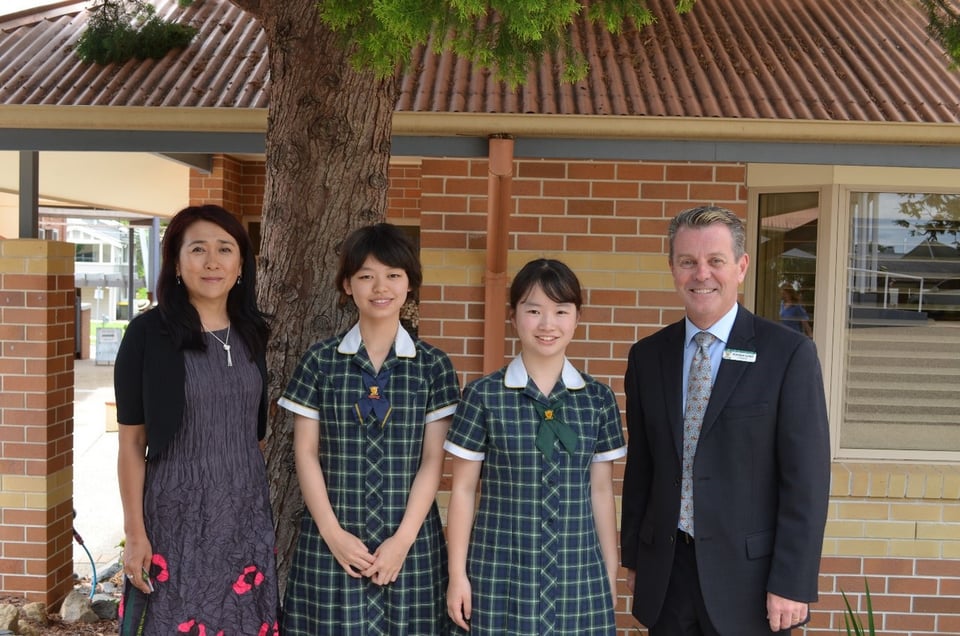
↑With Mr Cahill, Steven Sensei and Riko.
このようなオーストラリアの文化的行為を見つけ、またその根本的な理由を仮説立てることはとても私にとっていい経験になりました。ほぼすべての行動の働きとその根底は私の仮説が有力な説明となると考えます。また、文化を理解することで、友達とも積極的に話せるようになり、その結果、学校外でも遊べるようになりました。
By the way, the weather in Australia is quite weird these days like repetition of raining and clear sky. Also, the number of corona virus patients is increasing gradually in Australia. The recent news of a new case in Toowong, which is near Indooroopilly, wherein our school locates, triggered fear of infection. People start to buy groceries such as toilet papers, pasta and bread for stock and they become to be sold out everywhere as well as Japan. Seemingly from my statistic of students in Brigidine, people in Australia prefer using hand sanitizer rather than masks. That order of priority is exactly opposite from the one in Japan.
ちなみにオーストラリアの天気は不安定で、最近では雷雨と晴天が繰り返されることが多々あります。また、新型コロナウイルス感染症の件ですが、感染者は国内で100人未満にとどまっているものの、徐々に増加しています。最近、学校があるインドロピリーの近隣地区であるトゥウォングで新たなケースが見つかり、みんなが感染を危惧するようになりました。パン、パスタやトイレットペーパーをはじめとする日用雑貨を備えのために買い回る人が増え、品切れになる店が出始めています。しかし、学校の生徒をみると、手の消毒液をよく使い、マスクは誰も着用していない状態が読み取れます。これには驚きました。
Apparently my name is somewhat hard for certain number of people to call, so I’m often called both “Reika” and “Reaka.”
riences would be the contribution of acquirability for objective and diversified point of view to apply for creative and critical thinking. I only have 4 weeks left for stay in here, but I’ll do my best to have tangible experience hopefully. I really appreciate to have this meaningful life in Australia and want to convey thank-you to my mother, father, brother, teachers and friends both in Japan and Australia. Thank you for reading my report!
オーストラリアでの貴重な経験は批判的であり、また創造的思考の形成のための、物事を多角的かつ客観的に見る能力を獲得することにつながると信じています。残り3週間ほどのステイとなりましたが、これからも自分のためとなる経験をできるように頑張ります。このような機会を持つことができとても嬉しいと感じると同時に、支えてくれている母、父、弟、ホストファミリー、日本とオーストラリアの先生方そして友人にとても感謝しています。これで終わります。読んでいただきありがとうございました!


